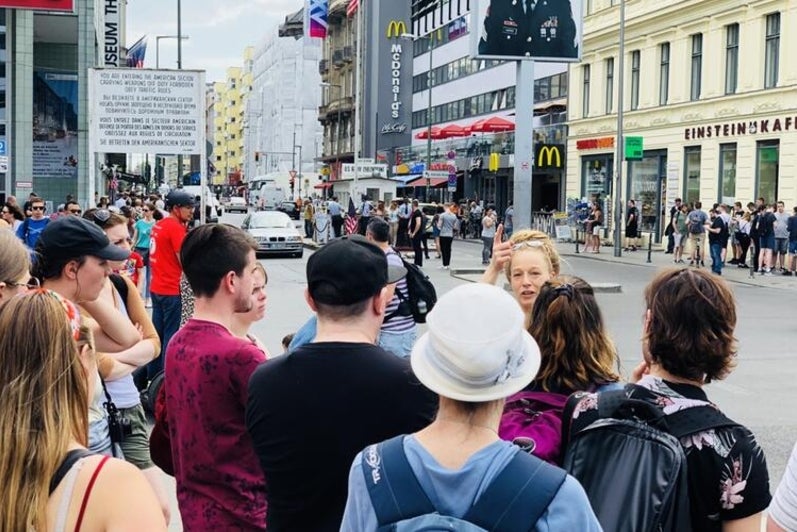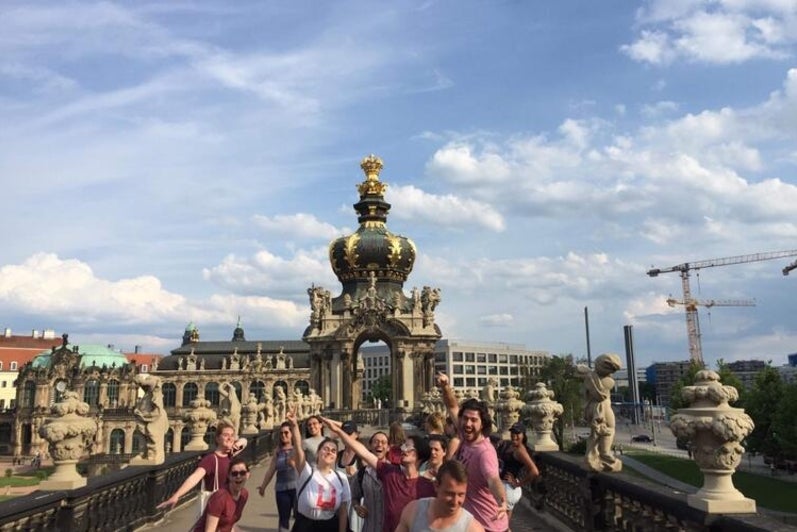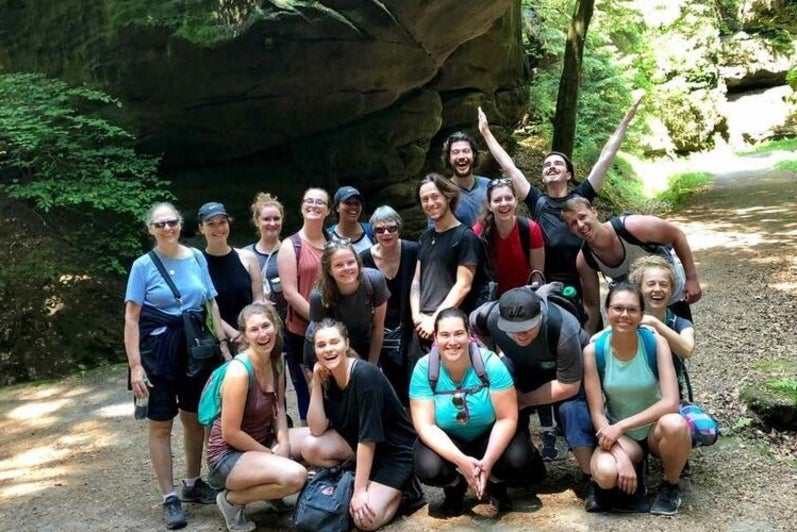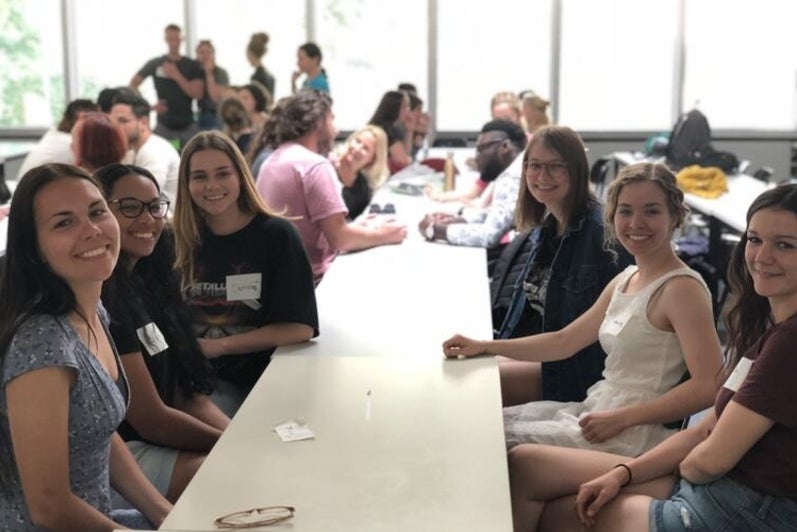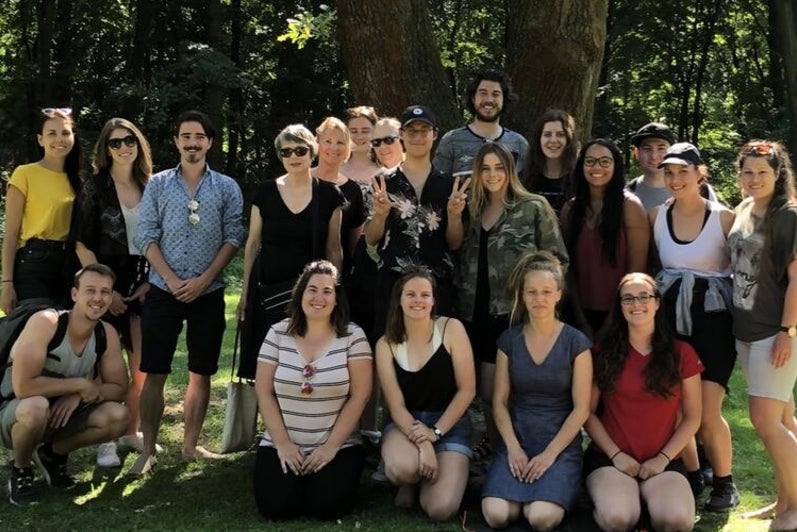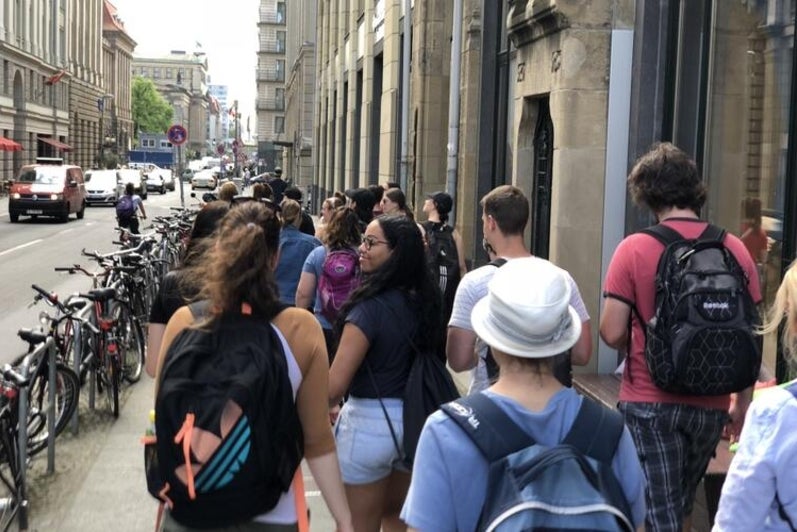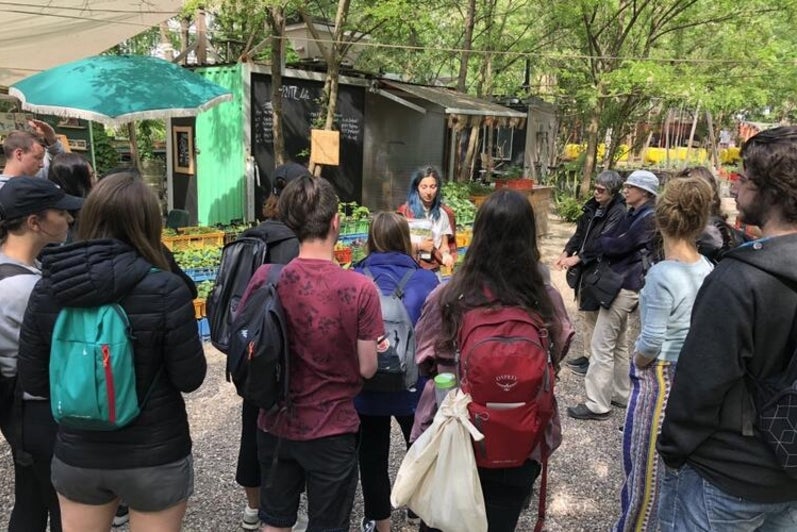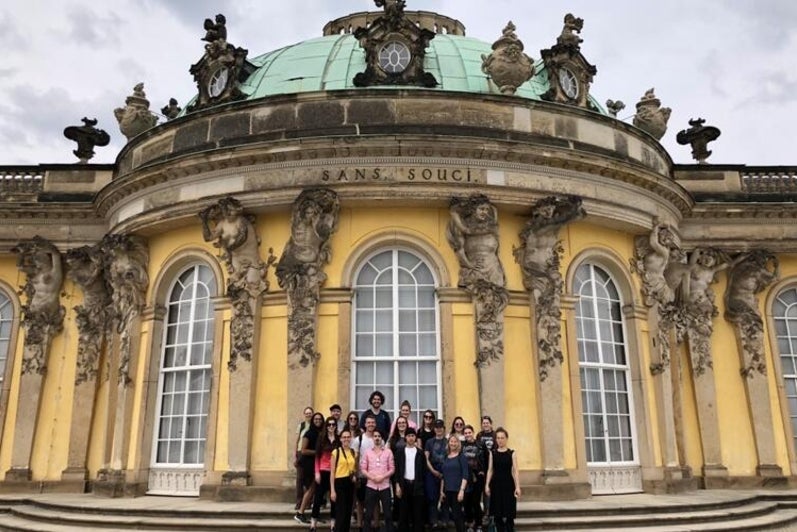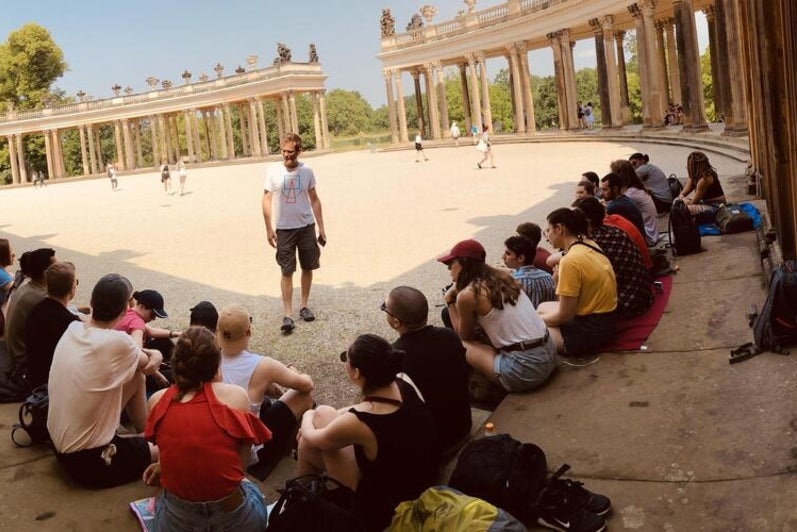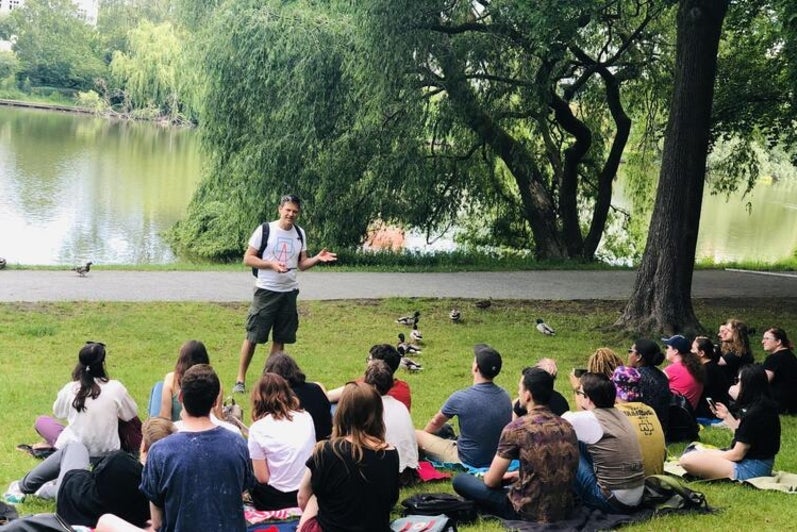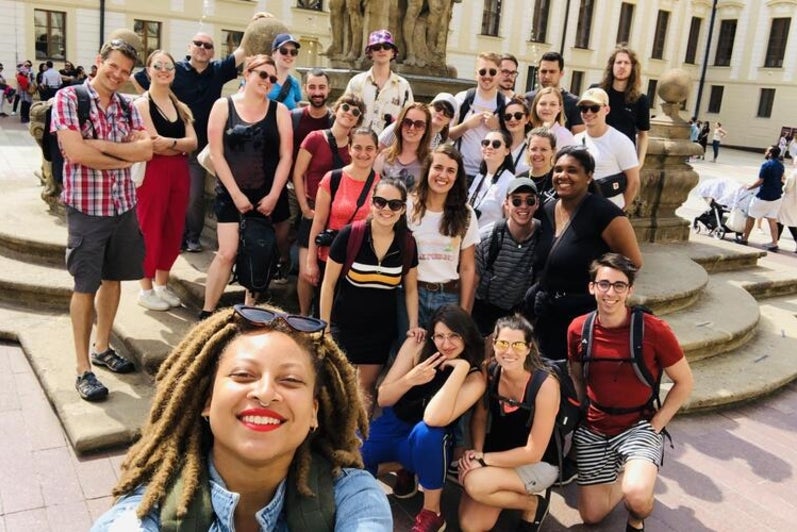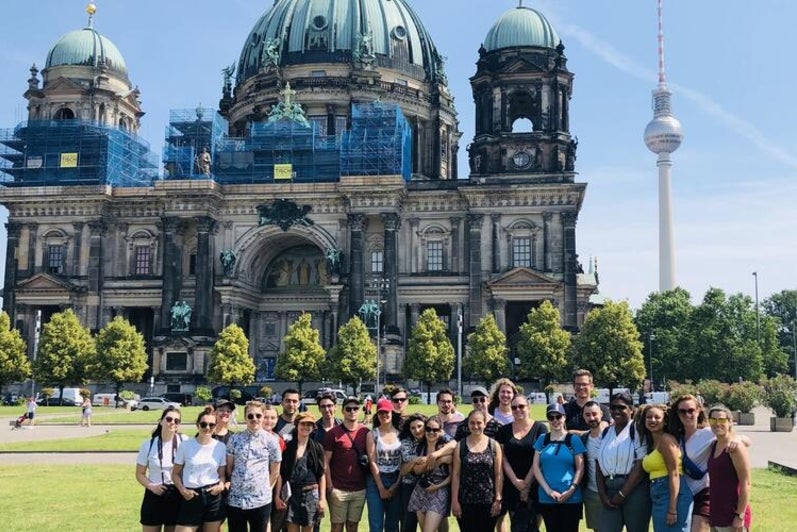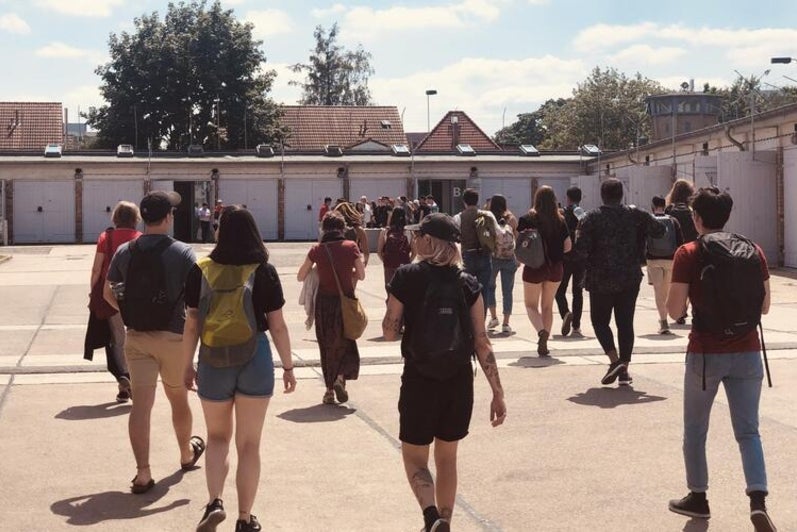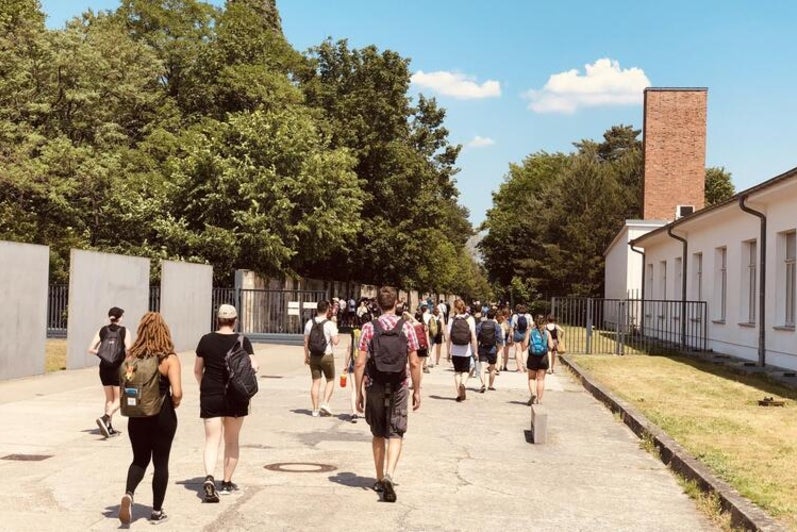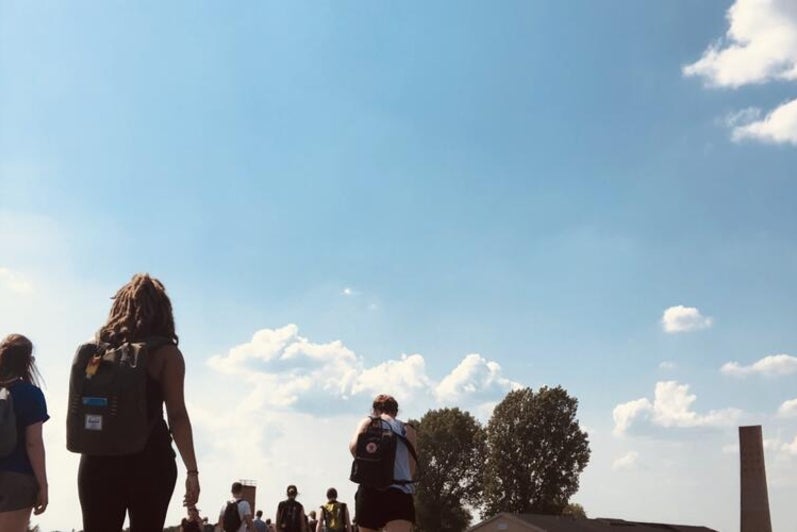Summer School in Berlin
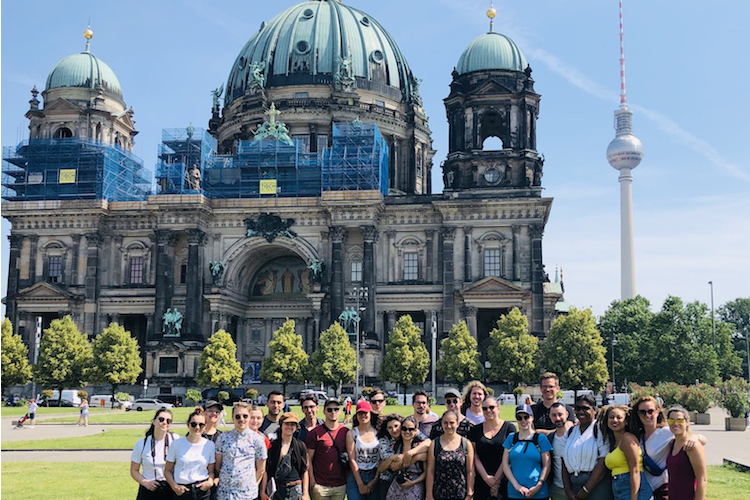
The 2019 participants of the Summer School in Berlin in front of the Berliner Dom
Institutional Association: Université du Québec à Montréal (UQAM) and Université du Québec à Trois-Rivières (UQTR)
Director: Prof. Nina Woll
Program Description:The course is a collaboration between UQAM and UQTR and is open to students across Canada. The goal of this course is to introduce undergraduate students from different programs of study to German history and culture by exploring a variety of sites reflecting some of the major turning points in German and European history. Furthermore, students are led to discover recent developments in German and international politics, and gain insights into classical and contemporary culture, including music, fine arts and architecture, as well as language. The course requirements include an oral presentation on one of 20 topics, which students start researching individually prior to departure. Presentations are embedded in field trips and closely related to the topic of the day. Upon return to Quebec, students are asked to produce an assignment (e.g., essay, short story, photo documentary), to demonstrate their understanding of Germany’s cultural and historical roots.
How does this program benefit students?
Students:
- Gain intercultural/-personal knowledge to empower their role as citizens
- Acquire a deeper understanding of German socio-historical issues
- Learn about different cultural codes/ways of interaction
- Reflect on and recognize their own cultural assumptions
- Meet Germans (identification/exchange/enrichment)
- Have the opportunity to improve their German language proficiency
- Take courses that will improve their academic profile
- Complete a final creative project that requires students to apply knowledge in a variety of formats. After returning to Canada, these projects are hosted as part of an exhibition to enhance visibility & engagement with the wider university community.
What have students enjoyed most about the program?
They have enjoyed a couple of things:
- Experiencing Germany in person through guided tours of historical spaces
- Being given the opportunity to develop not only their German language proficiency, but also to develop and apply their knowledge of German history and culture
- Deepening their understanding of Germany through real-life experience allowing them to:
-
empathize and identify with German culture and people,
-
reflect on what it means to be German, beyond stereotypes,
-
and to deconstruct myths about Germany (the representation of Germany in the media can be very uniform and many students are surprised to find that Germany is less homogenous than they originally thought).
-
What's your favourite part of this program?
It's hard to pick just one:
-
Witnessing students’ enthusiasm
-
Getting to see Germany through their eyes
-
Sharing my own story/identity
-
Bonding with the students and seeing them bond with us as instructors!
-
Rediscovering the ever-changing face of the Berlin
-
Swimming in one of the city lakes
-
Beer!!!
A lot of universities in Canada are promoting interdisciplinary learning. In what ways does your program support that goal?
There's a few ways:
-
Our students come from various programs of study and their knowledge & experiences add to our course
-
The socio-historical orientation of the program addresses a variety of disciplines
-
Our course outline is broad, allowing the students to focus on what interests them most
-
We encourage our students to contribute during course instruction so that we can all learn from one another
-
All of this leads to multiple and nuanced perspectives on the issues discussed during the course
Do you have any recommendations for other institutions looking to create a similar program?
- Start preparations early ! (at least 6 months in advance)
- Make sure to hold information sessions, and do the work advertising your program!
- Make reservations in Germany (guided tours, museums, opera, etc.)
- Make connections with partner institutions (where students can meet peers from Germany)
- Try to anticipate students’ needs & support them throughout the process (including travel preparation - flight, housing, visa, etc.)
- Be mindful of the academic side and make sure your program fulfils institutional program and credit requirements, etc.
- Let your students know about different grants and scholarship opportunities (like the WCGS travel awards!)
- Be upfront with your students about the program costs.
- Our program would not be possible without help from our program assistant, I highly recommend finding someone to take on this role.
- Connect with your students. We use a Facebook group and are active throughout the course via email.
- Have a plan for emergencies.
- Make sure your students have access to phones and the internet once in Germany.
Click below to scroll through pictures of the 2018 and 2019 trips provided by Prof. Woll:
